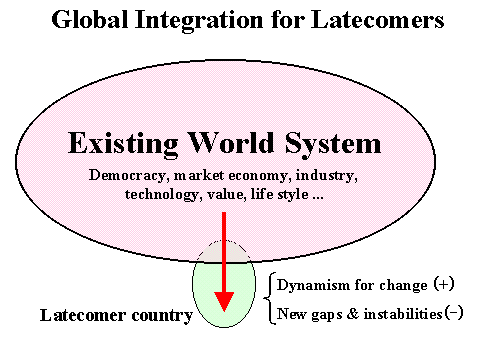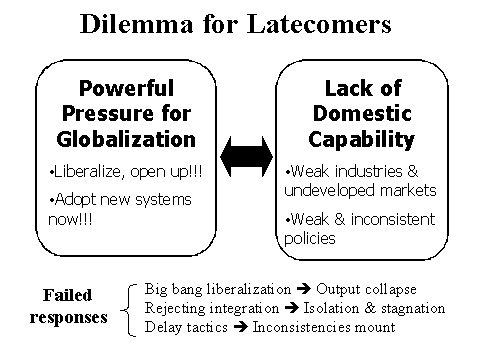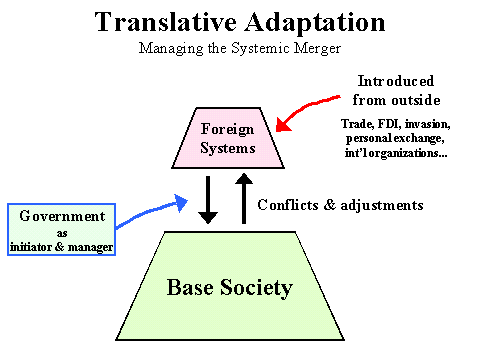Translative Adaptation
In any country, history proceeds as an interaction of domestic and foreign forces. Development under the strong pressure of globalization can be interpreted as the process of domestic actors (individuals, communities, firms, government...) responding to shocks and influences coming from abroad. From outside, it may look as if the weak country (say, Vietnam) is being engulfed in the dominant world system, forced to abandon its traditional values, culture, social structure and so on, in order to embrace "international best practice." In the early twenty-first century, global standards powerfully promoted by the center country include (American-style) democracy and markets.
Each society has unique characteristics, and existing institutions are mutually dependent and form a coherent whole ("institutional complementarity"). The domestic society has its internal evolution, but when exposed to strong foreign impact, social equilibrium is disturbed and the society begins to change. If the response is resilient and appropriate, the society will begin to grow dynamically. But if the response is weak or inconsistent, the society will be destabilized or even destroyed under foreign dominance. Some countries open up too quickly without preparation, only to face collapsing output or financial turmoil. Others refuse to integrate and revert to state control, degenerating into complete isolation and stagnation. Risks of mishandled integration are great. Confused systemic transition and frequent currency crises are the examples of globalization failure.
According to Keiji Maegawa, an economic anthropologist, successful integration must be pro-active. The domestic society is the base, into which new foreign systems are introduced. In a proper integration process, Maegawa asserts that the developing country should decide its own terms of integration, retaining autonomy, social continuity and national identity. The society changes, but the changes are managed by its government and people (not foreign advisors or multinational firms). Foreign ideas are introduced not in the original form, but with modifications to fit the local needs. If this happens, the transformed country is not really so passive or weak. It is taking advantage of external stimuli. This type of integration, with the society in full control, is called "translative adaptation." Maegawa says that Japan since the Meiji period (1868 onward) did just that. But today, for many developing countries with immature economy and unstable politics, translative adaptation is very difficult to implement. There is no easy formula to solve this dilemma.



[ Back to Main page (English)]
[Back to Main page (Japanese)]